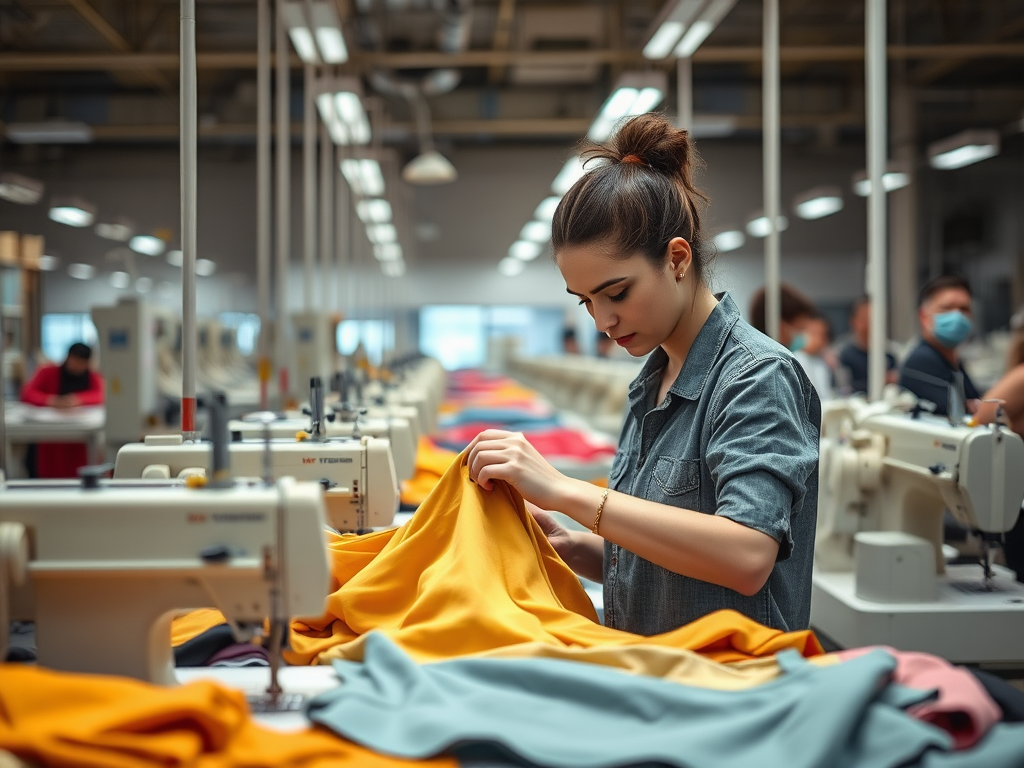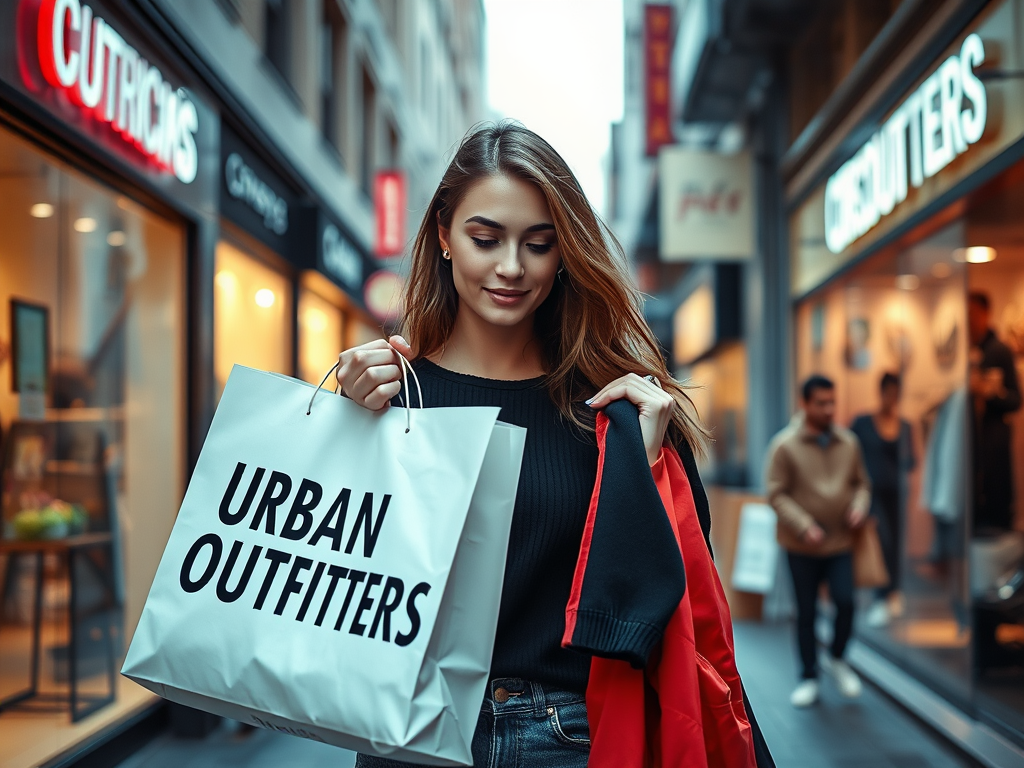Urban Outfitters has carved a niche for itself in the ever-dynamic world of retail, captivating a young, trend-setting demographic with its unique blend of lifestyle products. However, beneath the surface of catchy marketing and fashion-forward aesthetics lies a complex web of ethical considerations that merit careful examination. The growing consciousness around fashion sustainability has prompted consumers to question how their favorite brands conduct their operations, particularly regarding labor practices. As Urban Outfitters stands at the crossroads of style and ethics, the question looms: is the brand truly committed to ethical labor practices, or does it simply pay lip service to them? Throughout this exploration, we will delve into the intricacies of Urban Outfitters’ operations, casting light on their labor practices, controversies, and comparisons with industry peers.
Understanding the significance of ethical fashion is fundamental for any conscientious shopper. Ethical fashion goes beyond just offering trendy clothes; it involves practices that are sustainable, transparent, and respectful of labor rights. Nowadays, consumers are increasingly aware that their purchasing decisions can significantly impact the global landscape, prompting them to prioritize brands that resonate with their values. A movement towards sustainable shopping influences brands, including Urban Outfitters, to reassess and improve their ethical standards. As we investigate this brand’s labor practices, it becomes crucial to understand what ethical fashion entails and how it aligns with consumer expectations.
Understanding Ethical Fashion

Ethical fashion is defined as practices in the fashion industry that prioritize humane treatment of workers, sustainability, and environmental stewardship. This means that every piece of clothing should ideally be produced in a manner that does not exploit labor or harm the planet. The significance of ethical fashion today is evident in the rising demand for transparency in supply chains and sourcing materials. Consumers increasingly recognize that the true cost of clothing extends far beyond the price tag—encompassing the welfare of workers and the ecological impact. As part of this growing consciousness, brands are being pushed to ensure ethical labor practices are not merely marketing slogans but real commitments.
Urban Outfitters: Company Profile

Urban Outfitters was established in 1970, originally as a single store in Philadelphia. Over decades, this brand has transformed into a global retail empire, offering a unique assortment of products ranging from trendy clothing to home goods. Its target demographic primarily consists of millennials and Gen Z consumers who are drawn to the lifestyles and aesthetics that Urban Outfitters promotes. However, despite its popularity and appeal, the brand’s market positioning raises questions about the ethical implications of its business operations. As we dive deeper, it’s essential to assess how Urban Outfitters’ practices align with the wider trends in ethical fashion.
Labor Practices at Urban Outfitters
Urban Outfitters’ approach to labor practices has been under scrutiny in recent years. Questions surrounding the working conditions in their factories and retail locations have emerged as consumers increasingly demand transparency. Employees have reported concerns regarding wages, long hours, and overall workplace treatment. It’s essential to recognize that these factors contribute significantly to the brand’s ethical reputation. Additionally, improving labor practices is not just beneficial for workers; it can bolster consumer loyalty and enhance brand image. As such, understanding Urban Outfitters’ specific policies gives insight into its commitment to ethical labor.
A key aspect of ethical labor practices is supply chain transparency. Urban Outfitters has faced criticism for not providing detailed information about their supply chains, which makes it harder for consumers to understand the conditions faced by workers. Despite some initiatives aimed at enhancing transparency, challenges persist in maintaining ethical standards throughout their international production networks. Here are the main aspects of their supply chain transparency:
- Limited disclosures about suppliers and production locations.
- Challenges in ensuring compliance with ethical labor standards.
- Attempts at increasing visibility to foster consumer trust.
| Labor Practices | Rating |
|---|---|
| Wage Standards | Average |
| Working Conditions | Below Average |
| Employee Rights | Criticized |
| Supply Chain Transparency | Poor |
| Corporate Social Responsibility | In Progress |
Controversies and Criticisms
Urban Outfitters has faced various controversies related to its labor practices over the years. These include allegations of poor working conditions in their factories, insufficient wages, and lack of adequate breaks for employees. The criticisms have not gone unnoticed, and consumer backlash has been significant, sometimes leading to public protests and calls for boycotts. Understanding the crux of these controversies provides a clearer picture of the ethical dilemmas at play. The ongoing criticisms have been compounded by revelations about the brand’s pricing strategies, which some believe exploit vulnerable workers to maximize profits.
In response to the outcry, Urban Outfitters has attempted to address some of these criticisms. The brand has initiated various programs aimed at improving labor practices and enhancing workplace conditions. While some initiatives demonstrate a willingness to adapt, stakeholders often remain skeptical about the effectiveness of these measures. The follow-up on these programs and their actual implementation is crucial for determining whether Urban Outfitters can genuinely shift towards a more ethical framework. Acknowledging past mistakes and committing to long-term improvement will be crucial for restoring consumer confidence.
Comparison with Competitors
When considering Urban Outfitters’ ethical standing, it is essential to compare its practices with those of similar brands. Competitors in the retail industry are also navigating the ethical landscape but may offer stronger commitments to ethical labor practices. A few prominent brands are often cited as benchmarks, including:
- Patagonia – Known for its robust environmental and labor policies.
- Everlane – Advocates for “radical transparency” in its supply chain.
- Reformation – Focuses on sustainable practices and fair wages.
This comparison highlights the necessity for Urban Outfitters to continually reassess and improve its ethical commitments. Each of these brands has defined their success not just by profits but by building a solid ethical foundation. The challenge remains whether Urban Outfitters can keep pace with these standards.
Conclusion
In conclusion, the exploration of Urban Outfitters’ labor practices reveals a brand at a complex intersection of trendy fashion and ethical scrutiny. While Urban Outfitters has taken steps towards improvement, significant concerns remains regarding transparency and labor conditions within its supply chain. The brand’s willingness to confront these challenges will determine its future in an increasingly conscientious market. Responsible fashion choices require diligence from both consumers and brands, compelling Urban Outfitters to align its operations with the principles of ethical labor. As informed consumers support brands with transparent practices, the pressure on Urban Outfitters to make meaningful changes may increase.
Frequently Asked Questions
- What are Urban Outfitters’ labor practices? Urban Outfitters has faced scrutiny for their labor practices, primarily focusing on working conditions in their supply chain which has been criticized for lacking transparency.
- Has Urban Outfitters taken steps to improve their ethics? Yes, Urban Outfitters has implemented certain initiatives aimed at enhancing their labor practices, but progress has been met with mixed reviews from advocates.
- How does Urban Outfitters compare to other brands in terms of ethics? While Urban Outfitters has made some improvements, some competitors may offer more transparent practices and stronger commitments to ethical labor standards.
- What can consumers do to support ethical fashion? Consumers can research brands, choose those with strong ethical practices, and advocate for transparency in the fashion industry.
